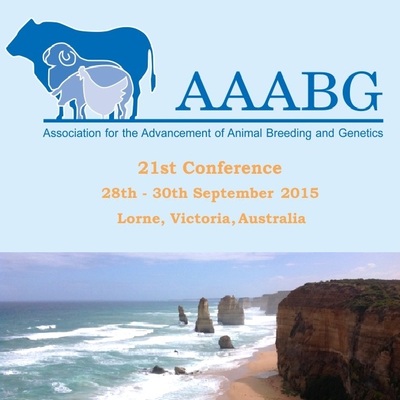Jennie Pryce
Agriculture Victoria Research, VIC, Australia
- This delegate is presenting an abstract at this event.

Dr Jennie Pryce is a world renowned researcher in dairy genetics and genomics and currently leads the DairyBio Animal’s programme funded by Agriculture Victoria, Dairy Australia and the Gardiner Foundation. She also holds positions with La Trobe University and DataGene.
She has >116 peer-reviewed publications with significant contributions to the area of application of genomic selection applied to improvement of dairy cow health, fertility, feed efficiency and heat tolerance. In 2016, Jennie was the first non-North American recipient of the prestigious American Dairy Science Association J.L. Lush award for Animal Breeding and Genetics. Jennie is originally from the UK, with a 1st class Hons degree and PhD from the University of Edinburgh.
Presentations this author is a contributor to:
Feed saved breeding values for Australian dairy cattle (#43)
9:00 AM
Jennie Pryce
Concurrent 7 - Breeding objectives & economics II
A review of the national breeding objective and selection indexes for the Australian dairy industry (#42)
8:30 AM
Timothy Byrne
Concurrent 7 - Breeding objectives & economics II
Are high Australian Profit Ranking sires best in all herds? Findings from the Feeding the Genes Project (#51)
9:30 AM
John Morton
Concurrent 8 - Genetics on the Ground I
Collection of data for the genetic improvement of health traits in Australian dairy cattle (#36)
2:33 PM
Mary Abdelsayed
3 Minute Speed Talks I
Detecting variants associated with complex traits through changing gene expression in cattle (#90)
1:45 PM
Majid Khansefid
Concurrent 15 - Detecting causal variants II
Validation of markers with non-additive effects on milk yield and fertility in holstein and jersey cows (#11)
11:30 AM
Hassan Aliloo
Concurrent 2 - Reproduction, behaviour & health I
Prediction of residual feed intake from genome and metagenome profiles in first lactation holstein-friesian dairy cattle (#25)
1:30 PM
Min Wang
Concurrent 5 - Feed efficiency, methane emission & Reproduction I
 AAABG 2015*
AAABG 2015*